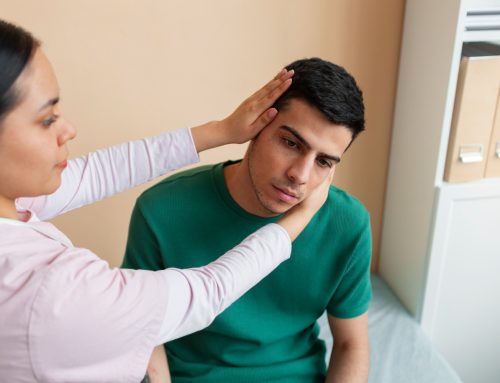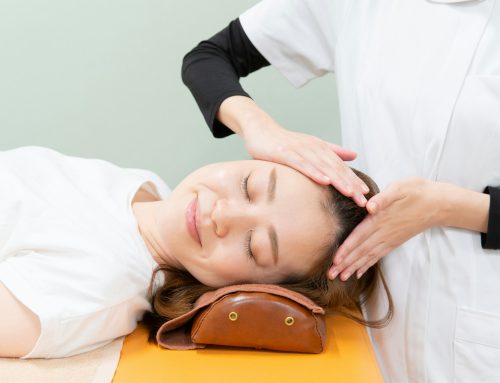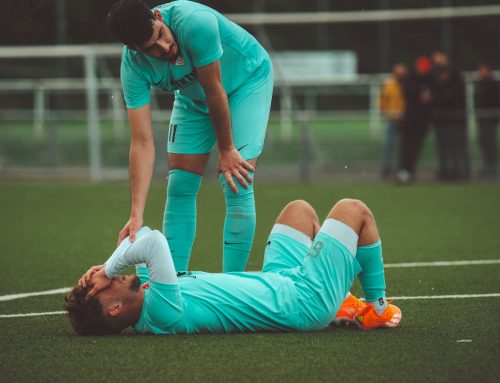Fall in Toronto changes how we move around the city. Fewer daylight hours, cooler air, and rainy days make roads harder to see and sidewalks more slippery. That mix can make bike and e-scooter rides more dangerous than they feel at first. It is easy to take a short trip and not expect anything unusual until a small slip or quick stop turns into a fall.
These accidents do not have to look dramatic to leave a mark. A low-speed bump to the head or a sudden jolt can still lead to a concussion, even if there is no clear bruise. Many people do not notice the signs until hours or days later, when something just feels off. That is why we often talk about concussion treatment in Toronto this time of year when these types of injuries start showing up more often.
How Bike and Scooter Falls Can Lead to Concussions
Riding a bike or scooter in Toronto means sharing space with cars, pedestrians, streetcar tracks, and uneven pavement. Add a layer of wet leaves or early frost, and it does not take much for a wheel to slip or stall. People can get hurt when they try to brake quickly, hit a curb at the wrong angle, or get clipped while turning.
It is not always the impact itself that causes trouble. Sometimes, the way your head snaps back or your neck and shoulders twist can be enough to shake up the brain. These movements can cause strain that might not show outside but has strong effects inside.
Wearing a helmet helps reduce serious injury, and it is a smart choice year-round. But helmets cannot prevent all concussions, especially when the force comes from a sharp turn, a fall onto the side, or other parts of the body snapping the head back. At Back In Balance Clinic, post-concussion care can begin with a detailed evaluation looking at neck and spinal health, since these areas often get strained during a fall.
What Concussion Symptoms Can Feel Like in Daily Life
After a fall, you might feel fine for a while. That is part of why concussions are tricky. The first signs often sneak in later, maybe a headache that will not quit, feeling slower than usual, or struggling to concentrate on easy tasks. For some, it is neck pain or balance issues. Others feel more bothered by bright lights, loud noises, or even busy traffic.
No two people will have the same symptoms, and they can change from one situation to another. One person might miss school because of nagging headaches. Someone else might power through work, only to feel completely drained by dinner. And in a busy city where life does not slow down, it is easy to brush off these warning signs, blaming them on a long day or fall stress.
Cold weather can add to the confusion. When we get tired, chilled, or sit under bright indoor lights, it is even harder to notice if things are really off. Some people blame the season or busy schedules for that tired, unfocused feeling, but concussion symptoms may be playing a bigger role.
Why Timing and Season Matter in Toronto
Fall in Toronto means big changes all at once. It gets dark earlier, streets are slicker, and it is harder to see well in the evenings. The weather does not just change what we wear; it shifts how we travel and how our bodies handle strain.
Slippery sidewalks mean there are more falls. Add busy traffic or crowded rush hour, and stopping quickly can end in a tumble. Cold air stiffens muscles and makes the neck and shoulders less able to absorb sudden movement. If there is already some tension in those areas, a quick jolt can lead to deeper problems for the brain and spine.
Indoors, bright lighting or noisy public spaces add new challenges. For someone with a concussion, these everyday things can make symptoms more intense, even if they felt fine outside. Stress from work, school, or city life easily hides milder symptoms until things slowly get worse.
People often expect to feel tired or run-down in the fall, so they ignore new signs. It is easy to think, “I am just tired,” when recovery might need a closer look.
When It’s Time to Get Checked Out
If you have had a bike or scooter fall lately and something feels a bit off, listen to those changes. Warning signs can include:
– Feeling foggy, with trouble remembering or focusing
– Losing your balance or getting dizzy more easily
– Extra sensitivity to light, sound, or crowds
– Mood changes such as feeling unusually frustrated or flat
– Headaches that will not settle
Sometimes these symptoms seem minor at first, but if they hang around for more than a couple of days or begin to stack up, it is worth being cautious. Getting concussion treatment in Toronto is not about overreacting; it is about taking steps that keep the recovery process on track instead of hoping everything clears up on its own.
At Back In Balance Clinic, concussion care can include neurological checks, eye movement tests, and balance screening alongside chiropractic or manual therapy to address neck and spine strain that can come from urban falls.
Supporting a Clearer and Safer Recovery
Bike and scooter falls catch people by surprise. They are quick, often cause little pain at first, and symptoms can go unnoticed for days. Concussions from these spills show up more than most expect in Toronto, and the clues often hide behind a busy life or changing seasons.
Fall is a chance to pause and really check how you are doing. Did a fall leave you feeling out of step? Are headaches or tiredness sticking around too long, or is your focus not back to where it should be? Noticing now can save you setbacks later on.
Taking concussion symptoms seriously right away not only makes daily life easier, it means you can head into winter knowing what your limits are and how to support your body. A little extra attention now helps keep your routine smoother, and safer, as the cold months roll in.
When you’re still feeling off after a fall, those small disruptions can make daily routines harder than they need to be. Getting the right support early can ease that stress and help things feel more manageable. We know how cooler weather in Toronto can magnify those aches and slow recovery. You can read more about how we approach concussion treatment in Toronto through thoughtful care and close attention to how each case presents. Reach out to Back In Balance Clinic anytime if you’d like to ask questions or talk about next steps.





